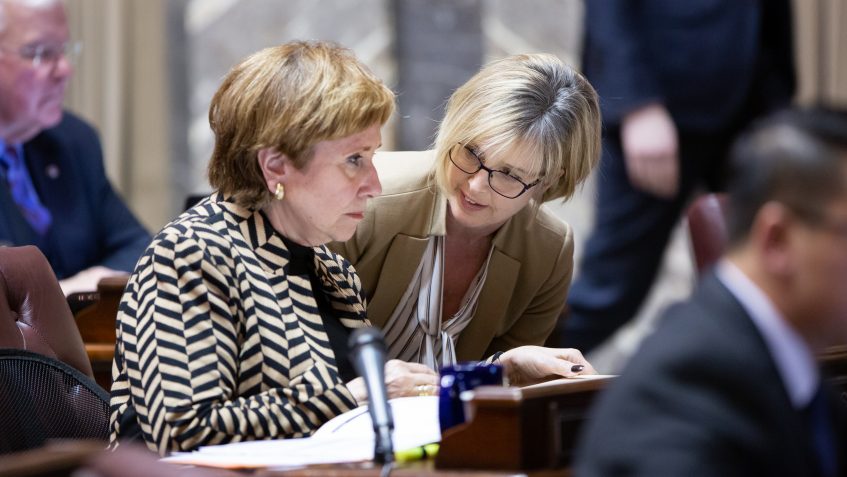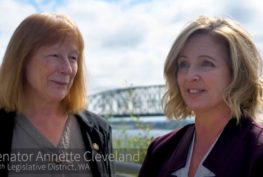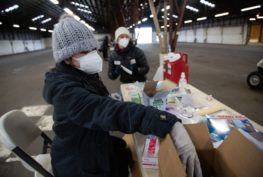As we continue to deal with the coronavirus, I’m hearing from households with questions about childcare access and availability.
Gov. Inslee’s “Stay Home, Stay Healthy” order this week deems childcare an essential service, but exactly what that means may vary for parents and childcare providers. If childcare is a concern for you, I hope the following answers to commonly asked questions will be of help.
What has been the impact on the childcare system?
The demand for available childcare is very high and access is limited. The day following the closure of K-12 institutions, Child Care Aware Washington saw a 200 percent increase in families seeking care at its referral center. Since this time, it has broadened outreach to providers to assess who is staying open and who is closed. As of March 20, 439 programs had closed, which represents about 21,000 childcare slots. As this is still being updated, that number may have already risen and is likely to remain fluid.
Not surprisingly, local childcare providers are facing significant challenges. Like many in the healthcare industry, childcare providers are having difficulty locating sanitation and cleaning supplies. Child Care Aware has been communicating directly with suppliers and distributors and is contacting providers to better define what is needed and where.
Meanwhile, the state Department of Health (DOH), state Department of Children, Youth and Families (DCYF), and the state Office of the Superintendent of Public Instruction (OSPI) are collaborating to develop a provision of essential services that will not jeopardize the health of children, staff or parents. DCYF has created a page where parents and providers can ask questions here.
Are childcare providers required to stay open?
While the governor’s order designates childcare facilities as necessary services, they are under no mandate to remain open. Childcare providers are independent business owners and make their own decisions about whether they should or can stay open during the pandemic. DCYF is reaching out to help them as they make these difficult decisions.
DOH has offered guidance to providers that covers health screening at entry, social distancing, outside play, meals and snack time, drop-off and pick-up, hygiene practices, transportation, and other concerns.
When should a childcare entity close?
At this time, DOH supports a closure if someone confirmed with coronavirus spent time there and had contacts with other individuals in the setting. In this situation, DOH and the local public health department will work with the childcare facility to consider the duration of the closure and to determine steps to limit the spread.
Will schools provide childcare for first responders?
Locally, the Evergreen Public School District is offering free childcare to healthcare workers and first responders, as detailed in this link. In addition, this Q&A offers information on childcare services for schools within the larger region’s Educational Service District 112.
More broadly, OSPI has issued new guidance on childcare by schools, and OSPI Superintendent Chris Reykdal has directed school districts to prioritize care for the children of healthcare workers, first responders, pharmacy workers, and grocery store workers. Districts have been directed to use the following definitions in determining whether a household falls under one of these categories:
- Members of the healthcare workforce, as defined by the Washington State Medical Association, include people who work in any setting where healthcare services, long-term care, long-term services and supports, or personal care are delivered. This includes, but is not limited to: hospitals, clinics, behavioral health centers, nursing homes, assisted living facilities, adult family homes, and personal homes.
- First responders include firefighters, law enforcement officers and emergency medical personnel as licensed or certificated by the state.
Beyond serving these groups, school districts have the discretion to serve other students and families provided they have capacity and observe social distancing guidelines to the best of their ability. A few districts have taken it upon themselves to assist these kinds of facilities, often in partnership with other local nonprofits like Boys and Girls Clubs and local YMCA and YWCA entities.
Is licensing a barrier to schools providing childcare?
Schools are not required to be licensed in order to offer K–5 childcare during the COVID-19 crisis unless they serve infants and toddlers. If a school partners with a community-based program that is licensed, that program can continue to operate under its existing license. Licensed programs may need to adjust their existing licenses in order to increase capacity and accommodate more children, change the location of a program site, or make other changes to better serve prioritized families. DCYF has an emergency licensing waiver process in place to assist with changes.
In addition, community-based organizations not currently licensed by DCYF may be eligible to operate as educational/recreational camps during the COVID-19 emergency. For more information about this option, potential providers should email DCYF at emergencychildcare@dcyf.wa.gov or call DCYF’s licensing office at 509-544-5712.
My family and I are heeding the advice to stay home so we can all stay healthy — and I hope you are, too. To limit the spread of coronavirus, my staff and I are now teleworking. We continue to monitor calls to my office and perform other legislative tasks, but we have suspended public interaction such as town hall meetings and other activities that involve gatherings of groups of people.
I will continue to provide updates as common questions arise. In the meantime, I encourage you to please do the best you can to take care of yourself and your loved ones.




